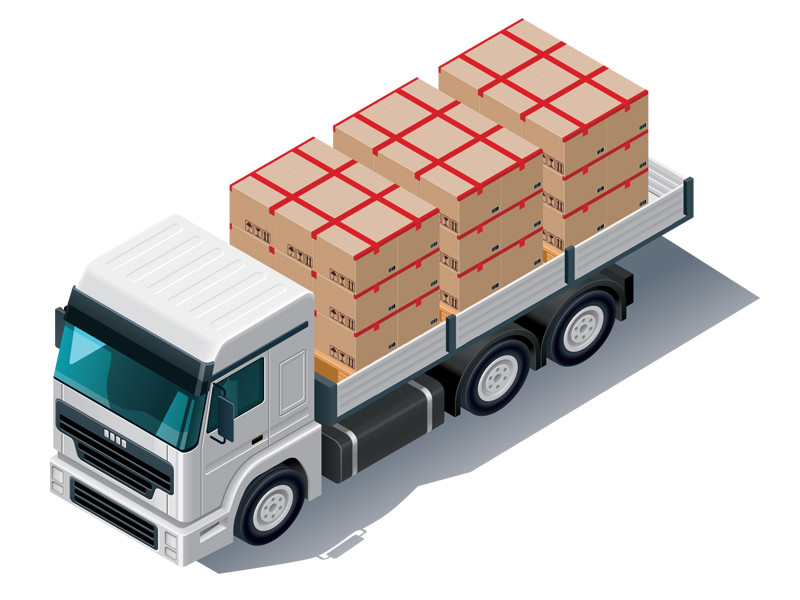The Rise of Full Truckload Transportation: A $3.7 Trillion Market by 2030
Full truckload (FTL) transportation is rapidly transforming the logistics and supply chain industry by offering a highly efficient and reliable method for moving large volumes of goods over long distances. The global market for FTL was estimated at US$2.9 Trillion in 2023 and is projected to reach US$3.7 Trillion by 2030, growing at a CAGR of 3.6% from 2023 to 2030. This growth is fueled by a confluence of factors, including the explosive growth of e-commerce, increasing consumer demand for faster and more reliable delivery, and advancements in logistics technology.
E-commerce Fuels the Demand for FTL Services
The explosive growth of e-commerce has created a surge in demand for FTL services, as online retailers require efficient transportation solutions to move large volumes of goods from distribution centers to customers across vast geographic areas. The need to deliver products quickly and reliably has become paramount for online businesses, and FTL transportation provides a solution that meets these demands. The increasing adoption of e-commerce platforms by businesses of all sizes is expected to further fuel the growth of the FTL market.
The Race for Speed: Meeting Consumer Expectations for Fast Delivery
Consumers are increasingly demanding faster delivery times, especially in the age of same-day and next-day shipping. This trend is driving businesses to rely more heavily on FTL transportation, which can offer faster transit times compared to LTL options. The ability to move goods directly from origin to destination without multiple stops and handling makes FTL a preferred choice for businesses seeking to meet the demands of fast-paced consumer expectations.
The Impact of Digital Freight Platforms and Real-Time Tracking
Advancements in logistics technology, such as digital freight platforms and real-time tracking systems, are making it easier for shippers and carriers to manage FTL shipments, optimize routes, and increase load efficiency. These platforms use algorithms to match shippers with available trucks, reducing the time and effort required to arrange shipments and ensuring that trucks operate at full capacity. The use of real-time tracking systems allows for seamless monitoring of shipments throughout their journey, providing valuable insights into delivery times and potential delays. This enhanced visibility and control contribute to the overall efficiency and reliability of FTL services.
Sustainability Takes Center Stage in FTL Transportation
The growing concern over carbon emissions is leading to investments in fuel-efficient and electric trucks within FTL fleets. Companies are increasingly adopting sustainable practices, including using renewable energy sources, optimizing routes, and implementing fuel-efficient technologies to reduce their environmental impact. The development of electric trucks, which offer zero tailpipe emissions, is further transforming the industry, making FTL transportation more environmentally friendly and attracting environmentally conscious consumers and businesses.
The Future of Full Truckload Transportation: Innovations Shaping the Industry
The full truckload transportation industry is constantly evolving, with new innovations emerging to further enhance efficiency and sustainability. Advancements in route optimization software use real-time data, such as traffic conditions, weather forecasts, and road closures, to plan the most efficient routes for trucks, reducing fuel consumption and delivery times. Telematics systems provide fleet managers with detailed information on vehicle performance, driver behavior, and fuel usage, enabling proactive maintenance and improved safety, which are critical for maximizing the reliability and efficiency of FTL operations.
The Role of Automated Freight Matching Platforms
Another significant innovation is the use of automated freight matching platforms, which use algorithms to connect shippers with available trucks in real-time, reducing the time and effort required to arrange shipments and ensuring that trucks operate at full capacity. These platforms often integrate with digital freight marketplaces, allowing for seamless booking and tracking of shipments. Additionally, advancements in electric and autonomous trucks are on the horizon, promising to further enhance the sustainability and cost-effectiveness of full truckload transportation in the near future.
Full Truckload Transportation: Driving Supply Chain Efficiency and Reliability
Full truckload transportation significantly impacts supply chain reliability and cost efficiency by providing a direct, uninterrupted shipping service that minimizes delays and reduces the potential for cargo damage. Since FTL shipments travel directly from the origin to the destination without stopping at multiple terminals, there is less handling of goods, which lowers the risk of loss or damage and ensures that deliveries are more predictable and on schedule. This reliability is crucial for industries that rely on just-in-time (JIT) inventory systems, where any delay can disrupt production lines and lead to costly downtime.
The Cost-Effectiveness of Full Truckload Shipping
Additionally, FTL transportation can be more cost-efficient for large shipments, as the cost per unit decreases when an entire truck is utilized, and there are no intermediate handling fees associated with LTL shipments. The ability to optimize load capacity and reduce the number of trips also leads to lower fuel consumption and reduced overall transportation costs. By enhancing both reliability and cost efficiency, full truckload transportation plays a vital role in supporting robust, responsive supply chains that can meet the demands of modern commerce.
The Future of Full Truckload Transportation: A Sustainable and Efficient Logistics Solution
The full truckload transportation industry is poised for continued growth, driven by the increasing demand for efficient and reliable logistics solutions. The industry's commitment to sustainability, through investments in fuel-efficient and electric trucks, and its embrace of digital freight platforms and real-time tracking systems are making FTL transportation more sustainable, efficient, and cost-effective. As e-commerce continues to grow and consumer expectations for fast and reliable delivery remain high, full truckload transportation is well-positioned to play a crucial role in shaping the future of logistics and supply chain management.

















